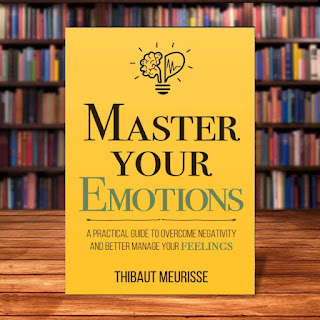Master Your Emotions: by Thibaut Meurisse
A Practical Guide to Overcome Negativity and Better Manage Your Feelings (Mastery Series)
1. Emotions are natural and necessary, but they can also be difficult to regulate. Mastering your emotions is essential for success in all aspects of life.
2. Recognizing and comprehending your emotions is the first step toward mastery. Consider your emotions and learn to recognise them correctly.
3. Emotional intelligence is essential for emotional mastery. This includes being aware of your own emotions, understanding the feelings of others, and effectively managing your emotions.
4. Developing a growth attitude can help you better regulate your emotions. This means understanding that rather than being defeated by problems, you can learn and develop from them.
5. Use mindfulness and meditation to help you stay present and centered in difficult situations.
Visit here to buy : Master Your Emotions: by Thibaut Meurisse

Comments
Post a Comment